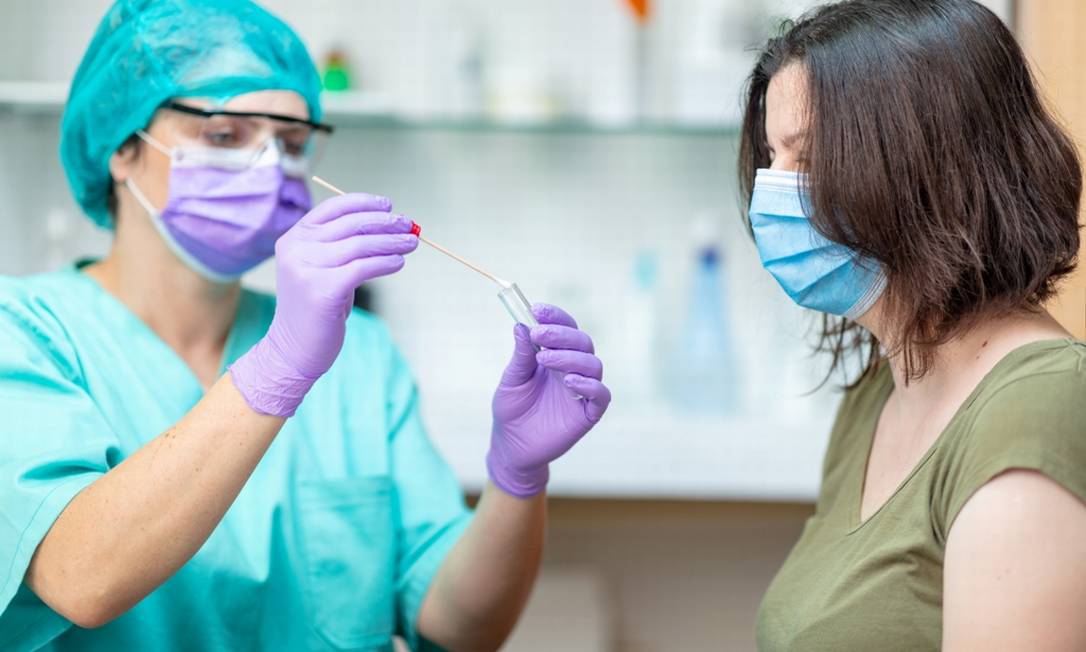on
Astronomy
- Get link
- X
- Other Apps
 |
| The laboratories are safe environments and follow all protocols so there is no transmission of Sars-CoV-2 Photo: Getty Images |
Covid-19 has been an issue everywhere and in the media for at least a year. However, issues related to the disease still confuse the population. One of the topics that raises the most doubts is the tests that diagnose the infection. They are among the most fundamental elements in combating the pandemic.
CLICK AND TAKE YOUR COVID TEST WHEN YOU WANT
- The test is important for us to know who has the virus, so that it quarantines for a period and does not transmit Sars-CoV-2 anymore. That's the most important. And there is no restriction on the test, anyone, of any age can take the exam - emphasizes the doctor Izidro Bendet, clinical pathologist and virologist at Dasa .
Next, Dr. Bendet clarifies the most common questions about testing for Sars-CoV-2.
1 - What types of tests exist and how do they work?
There are two main tests. One of them is the RT-PCR, made to diagnose if the patient has the infection at the time of the test. To perform the exam, you need to collect material from the nose. The other is the serology exam, done by collecting blood. This is to detect whether the person has developed antibodies against Covid-19 and is used to see if the patient has had contact with the virus.
2 - Who should take the test?
Patients who are suspected of being infected, people who have had contact with someone who has Covid-19, and patients who are going to have any elective surgery should be tested.
3 - When should the test be done?
Usually, on the third day of symptom. The virus can be detected earlier, but the viral load gets higher when the person is more symptomatic. The more symptoms, the more likely to detect the infection. If done by the 12th day of infection, the test is usually positive. If you had symptoms but were unable to get tested at the beginning, you can do it in the following days.
4 - How do I know which test to take?
For the diagnosis of acute disease, RT-PCR. Serology is to find out if there has been contact with the virus. Covid-19 has respiratory symptoms that can get worse between the 8th and 10th day of infection. If the patient did not undergo RT-PCR and visits the hospital late, after the 10th day, serology can help make the diagnosis, but its function is to know if the person has had contact with the virus.
5 - How do quick tests work?
There are fast RT-PCR techniques, but it is used only in special cases. Indicated when the patient needs to make an immediate decision, is going to travel etc. The result takes three hours to leave, but the cost of the exam is higher. The rapid serology test is done by collecting blood from the patient's finger and the result is ready in 15 minutes. But this modality does not perform well for diagnosis, so it is not the most suitable.
6 - Are laboratories safe environments against contagion?
Yes. The units already have all the protocols so there is no transmission of Sars-CoV-2. But there is also the option of doing household collection.
7 - Why can tests give false negative or false positive?
There is no exam with 100% reliability. In general, RT-PCR has a sensitivity of 80% to 85%, which means that the test will be positive for 80% to 85% of the patients tested, but it will be negative for 15% to 20%. If the organism still has little virus at the time of collection, it will be negative, for example. The false positive is more unusual, but it can happen. The exam methodology has a margin of failure that is part of it.
8 - Is it necessary to repeat the test in any situation?
Yes. If you are suspicious of Covid-19 and the result was negative, it is recommended to repeat. If after a few days the negative result comes out, you get worse, you also have to do it again.
Have more questions about Covid-19? So, be sure to follow the live on Facebook and Youtube of O GLOBO, presented by SérgioFranco Medicina Diagnóstica , on March 4, at 4pm. The meeting will be mediated by Luis Fernando Correia, general practitioner and intensivist, member of the American Association of Doctors, and health commentator for Rádio CBN and Globo Internacional.
The panelists will be Dr. Alberto Chebabo, Dasa's medical manager, vice-president of the Brazilian Society of Infectious Diseases and medical director of HUCHH / UFRJ; Dr. Ana Escobar, professor at the Medical School at USP; and Dr. Wanderson Oliveira, doctor in epidemiology, with extensive experience in public health emergency management and research.
Comments
Post a Comment